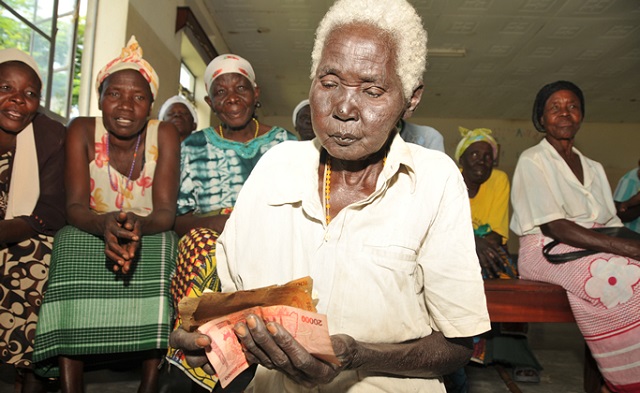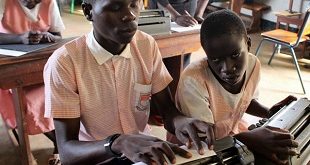
Kampala, Uganda | THE INDEPENDENT | Parliament’s Gender, Labour and Social Development Committee has queried the inconsistent funding for the Social Assistance Grants for Empowerment (SAGE), saying that this impedes the effective running of the programme and the general welfare of the beneficiaries.
The committee demanded that the Ministry of Finance provides to parliament a statement of assurance on the sustainability of the SAGE programme after the funding partners pull out.
This is carried in the report tabled before parliament on Wednesday by the Committee chairperson Flavia Kabahenda. The report is in response to the sector proposed budget for next financial year 2022/2023.
Government has since 2010 been operating the SAGE program and in the financial year 2018/2019, Cabinet announced a national rollout of the programme to cover all older persons aged 80 years and above across the country.
However, Kabahenda said that the grant is faced with significant challenges noting that next financial year 2022/2023, government will need 146.7 billion to pay all beneficiaries but only 120.7 billion is provided leaving a shortfall of 26.9 billion.
“The same shortfall was experienced in the current financial year, but was covered by development partners. Secondly, there are arrears amounting to 36.2 billion to date, out of which a provision of only 14.4 billion has been made, leaving a funding gap of 21.6 billion which is required to cover the arrears for 270,203 beneficiaries that did not receive remittances in the 4th quarter of financial year 2020/2021 due to inadequate funds,” said Kabahenda.
She added that while the deficit during the current financial year was covered by development partners, these will cease to support the programme in June, 2022. Kabahenda expressed worry that this will leave the funding of the programme in jeopardy and that the arrears are likely to continue.
Kabahenda told parliament that the budget shortfalls of the programme continue to impede the effective running of the programme, the general welfare of the beneficiaries and the overall vision of national protection aspirations.
“The grant helps the elderly that have no other form of social protection, who, more often than not, are also taking care of dependants such as orphaned grandchildren. If the funding gaps remain, this will definitely have a negative impact on the lives of targeted beneficiaries and their dependants,” she said.
The Gender Committee also observed that the lack of a national social protection strategy continues to hinder coordinated planning and eventual financing for social protection in the country.
The Committee recommended that 27.6 billion be provided in next financial year 2022/2023 to cover arrears for the 270,203 beneficiaries that did not receive remittances in the 4th quarter of financial year 2020/2021.
The MPs also recommend that 26.9 billion be provided in next financial year 2022/2023 to cover the shortfall to ensure that all the beneficiaries aged 80 years and over are covered.
Meanwhile, Kabahenda also opposed the merger of funds under the Uganda Women Entrepreneurship Programme (UWEP) with the Parish Developmental Model saying that women have no access to factors of production that are being emphasized under Parish Development Model (PDM).
UWEP was established in 2016 as an affirmative action revolving fund with the goal of empowering Uganda women to improve their income levels and their participation and contribution to economic development.
The project targets women in the age bracket of 18 to 79 years and the beneficiaries include unemployed women, women with disabilities and other vulnerable women. The project has so far benefited 16,542 projects across the country and 191,476 women to date. The project recovery rate is 72.8 percent.
Parliament learnt that a total of 29.02 billion out of the UWEP budget of 32 billion has been reallocated from the Ministry of Gender, leaving a balance of only 2.98 billion for secretariat operations and salaries of staff.
Kabahenda says that this effectively stops the prograrnme and will not only put the lives of women at risk, but will also make it impossible to recover the money already in circulation.
“Whereas special interest groups are allocated funds in the Parish Development Model, the bulk of the funds are aimed at agricultural enterprises and yet the vast majority of women in Uganda have limited access to factors of production, especially land, and would, therefore, not benefit from the PDM as much as they do from UWEP. Moreover, the COVID-19 pandemic has negatively impacted the economy and many informal businesses have collapsed,” she said.
Anita Among, the Speaker of Parliament defended the retention of UWEP saying that not all women will be joining the SACCOS under the Parish Development Model.
Betty Amongi, the Minister of Gender said that they will put into consideration the recommendation by parliament.
Parliament adopted the committee report and forwarded it to the House budget committee for consideration in the national budget report.
******
URN
 The Independent Uganda: You get the Truth we Pay the Price
The Independent Uganda: You get the Truth we Pay the Price



